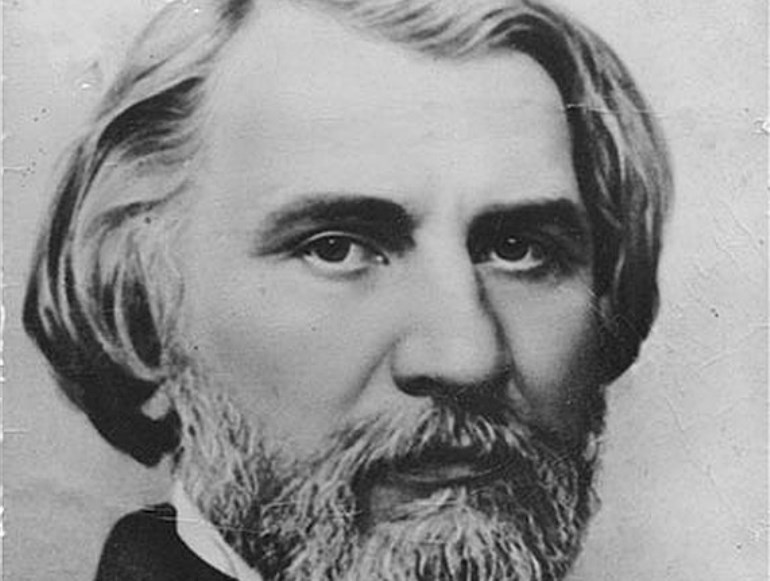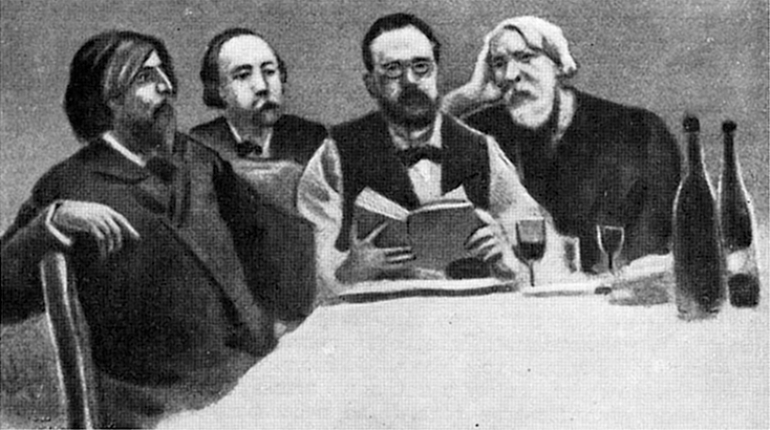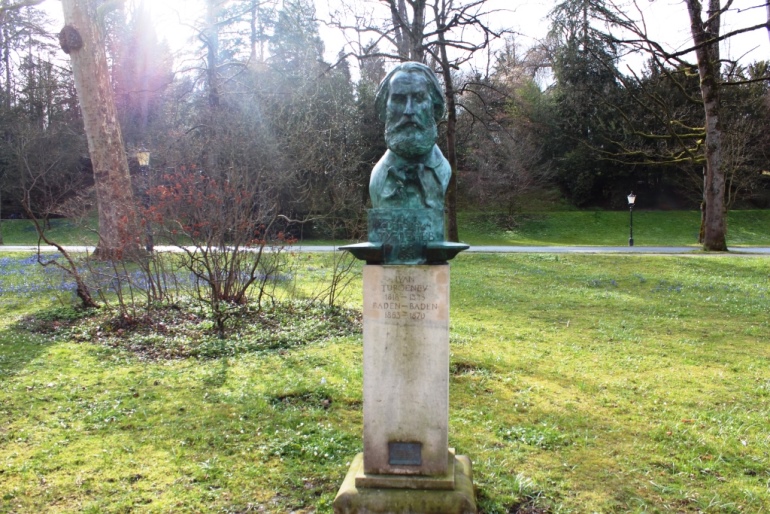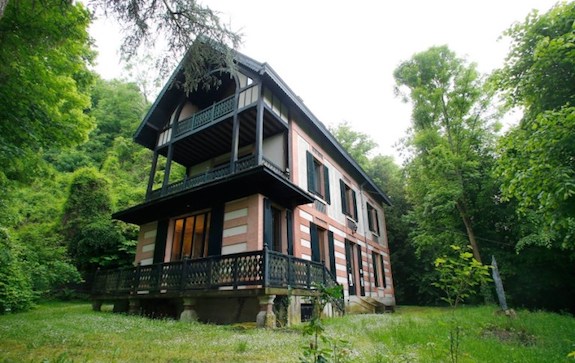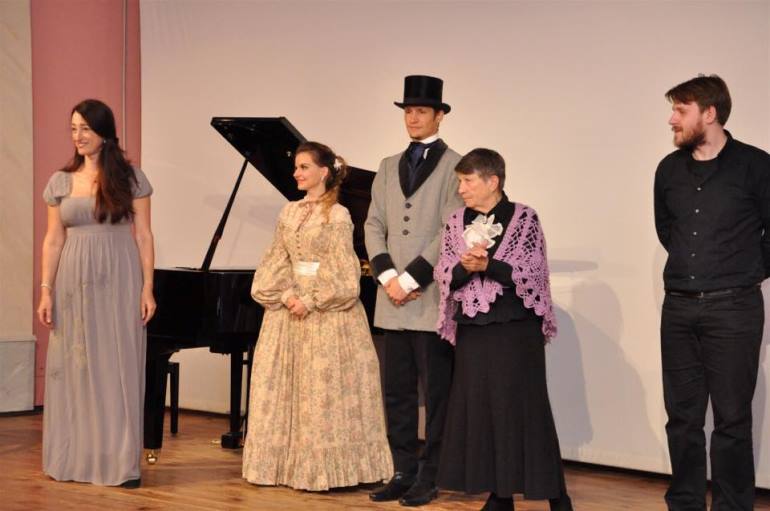Sergey Vinorgadov
Special dinner in celebration of 200th birthday anniversary of Ivan Turgenev to be held on behalf of the Lord Mayor (Oberbürgermeister) of Baden-Baden, and the mayor of the commune of Bougival will open commemorations of the writer conducted near Paris. For three days Sorbonne and Sénat de la France in Paris will accommodate Turgenev scholars from all over the world.
The 200th birthday anniversary of the Russian classic author has been entered into UNESCO’s Calendar of Events. Cities and towns where Turgenev lived, as well as those he never visited, will host exhibitions, scientific conferences, stage performances, poetry events and film festivals with screen adaptations of Turgenev’s works. And new editions of Turgenev’s books will certainly be published; for example, new 7-volume collection of his prose translations into Chinese will be presented in Shanghai. Events dedicated to Turgenev have been conducted throughout 2018, and main events of the Anniversary calendar were launched in August.
Russian European
Speaking of Russian classical authors, Ivan Turgenev, who spent one third of his life in Europe, was the most included one into global literature process of his time. He used to be friends with Flaubert and George Sand, worked with Daudet and Zola; Maupassant considered Turgenev to be his teacher in literature. By virtue of this friendship, the top European and world authors wrote articles for Russian magazines. Novels and short stories by Turgenev were translated into European languages, had impact on European literature, opened a way to West for other Russian writers and made Europe discover true Russia. Russian national character became known worldwide in large part because of Turgenev’s books.
Feast of the classics – А. Daudet, G. Flaubert, E. Zola, I Turgenev. Photo credit: wikimedia.org
Aside from reading, you can enjoy Turgenev by watching and listening. This year his play “A Month in the Country” has been put on stage by at least ten theaters in Moscow and European capitals. A co-production by two French theaters had its premiere in Paris in spring. Stars of French theaters have been engages in the staging by Alain Françon, a well-known exegete of Chekhov’s plays. Parisian “Month” sold out full house all the way.
Alexander Hertzen and Ivan Turgenev: Conversation staging comprised of dialogs between two Russian classical authors, will be performed in the commune of Bougival near Paris, where so called holiday home of Turgenev is located, on September 16th. The day before, on the same scene, stage actors from Russia will sing sentimental songs with lyrics by Ivan Turgenev.
Exhibition events, commemorating Turgenev’s anniversary, have been launched abroad since February, when the project
Ivan Turgenev, Russian European went on the road across 12 countries in Europe and the CIS. Display items and a documentary about life and work of the writer, which was produced with support of the Russkiy Mir Foundation, have been seen in Spain, France, Belgium, Germany and other countries.
Turgenev glorifies Russian nature; he is an excellent artist painting landscape by means of literature. Curators of a mobile exposition “Landscape enriched by thought: Turgenevian nature in modern Russian painting” have emphasised this aspect of the writer's creativity. In May the exposition was opened in Berlin and set out across Europe. Turgenev’s biography was of a great inspiration in mapping the route – the paintings have already been seen in Germany, Belgium and Luxemburg; the exposition also intents to visit France and Germany.
The Turgenev monument in Baden-Baden. Photo credit: okapustina.blogspot.com
In September Baden-Baden, where Turgenev lived for almost 8 years, and where the story of his Smoke novel takes place, will host another kind of exhibition. It has been organized by Baden-Baden City Museum and Moscow Literature Museum in cooperation with the University of Freiburg and aims to show what brings Russia and Europe together and what makes them apart through unveiling Turgenev’s message.
Serious issues would also be taken up at scientific conferences dedicated to the 200th birthday anniversary of the author. Conferences in Spasskoye-Lutovinovo, the Turgenevs’ Manor House in Orlovskaya Region, in Moscow, as well as in Paris, Brussels, Spanish Granada and Riga have been scheduled for October and November.
Holiday home near Paris
Ivan Turgenev’s manor house near Paris is a center of the writer’s European presence. Turgenev himself would have agreed to this point. This manor house can be considered memorial along with Spasskoye-Lutovinovo. His house in Bougival became the writer’s final resting place – Turgenev lived there for nine years and passed away in the house. Turgenev had built a cottage in Russian style next to a villa of Pauline Viardot, the writer’s beloved. Both structures can be seen today as well.
Owners of the manor house used to change frequently; however now the house in Bougival is the Ivan Turgenev museum. It was opened in the early 1980s by the Association of friends of Ivan Turgenev. The manor house had to be literally conquered back from the local administration, which intended to demolish structures and build a stadium there. Prominent representatives of French cultural and intellectual communities, students and local inhabitants all were engaged in the fight for the Turgenev museum.
Turgenev’s holiday home in Bougival. Photo: European memorial holiday home of Turgenev/compagnielessignatures.fr
The museum was headed by Alexander Zvihilskiy a descendent of white emigres and well-known explorer of the writer’s work (he had been examined on his dissertation in Sorbonne). Thanks to his encyclopedic scale knowledge and commitment, the manor house interior from Turgenev’s times was successfully restored by buying out some original writer’s belongings from collectors. Currently his son Mark administers the museum activities. During his last visit to Russia he shared about the hard battle they have with French municipalities to preserve the museum. After the manor house had been entered into the memorial register, the authorities left idea to demolish the buildings, but now they attempt to hand Viardot’s and Turgenev’s houses to hotel business. The museum’s administration and the Association of friends of Ivan Turgenev, which brought together hundreds of Russian and French members, hope that the museum will be granted national status.
Anniversary celebrations in Turgenev’s manor house have been running throughout the whole year. Orchestras and singers perform on the ground next to the museum; stage performances and exhibitions are also conducted there; hundreds of visitors come to the manor house. Soon the manor house may turn into filming location for movie depicting Turgenev’s life in France. The director’s chair will be taken by Mark Zvihilskiy, the museum director who graduated from the All-Russian State Institute of Cinematography.
Turgenevian saloon in Brussels
There is quite a number of Turgenevian communities in Europe. The most active are French, German and Belgian ones. They go beyond being just clubs that bring together admirers of the writer’s work; they create certain environment all around by conducting musical performances, exhibitions and conferences. And they closely interact with each other.
A couple from Brussels – a philologist and Turgenev scholar Conrad Furman and his wife Natalia Shumilova - founded a Turgenevian community in the Benelux three years ago. “The fundamental idea of the community is promotion of Russian culture in the Western world,” said Natalia to a Russkiy Mir reporter. “We conduct lots of various events, but the most frequent ones are meetings in the manner of pre-revolutionary literary-musical saloons. There we read Turgenev’s works aloud, discuss them. We invite artists, musicians, poets, stage directors, philologists, and etc. Anyone who would be interested to listen and to be with us.”
Concert by members of the Turgenevian community in the Benelux. Photo credit: the Community’s Facebook page
The community’s permanent members include the Russians and people from former USSR Republics, who live in Belgium and other countries, descendants of Russian immigrants from different immigration waves, and Belgians, who are interested in Turgenev and Russian culture. The Turgenevian community in the Benelux is not all about saloons. In July its members conducted Turgenev’s Days in Brussels, which brightened up local cultural scene.
“Turgenev is not my favourite author,” Natalia Shumilova admits, “but my co-members from the Turgenevian community and I feel very close to him. We also live abroad, for various reasons whatsoever, but it does not make us love Russia any less. You know, those who believe that everything is horrible in Russia are not with us. We have here different people – those, who appreciate their roots, who are interested in Russia’s current affairs and its history. From what we can see, the purpose of our Turgenevian community is to re-discover him from new prospects, to demonstrate his significance for Russian and European cultures. Turgenev is a Russian author who spent considerable part of his life in the Western world. By his biography, by his nature he is a unifying character. Furthermore, Turgenev is a cultural bridge between Russia and Europe, and this is what we clearly observe here.”

